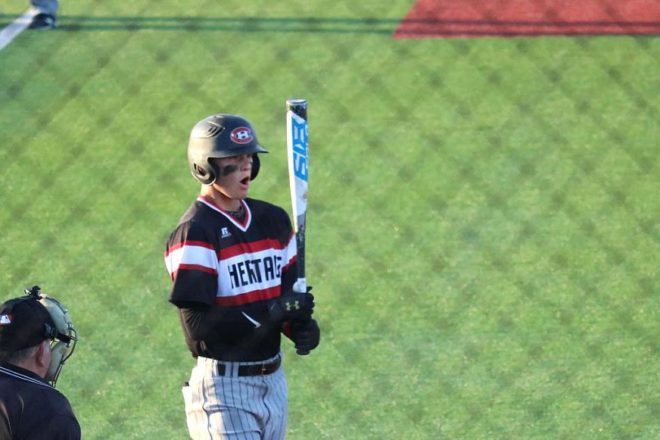Great athletes are great for a lot of reasons.
Often one of those reasons is pure talent.
When you combine pure talent with consistent physical strength and conditioning, you get something magical – like going 7-0 and helping your team get to the National League Championship Game in your rookie season.
That is what Corbin Burnes did when he came onto the scene in 2018 with the Milwaukee Brewers.
But, what happens when suddenly that success stops and struggle sets in?
Well, it depends on how you respond to the struggle.
Athletes can get frustrated and blame, complain and get defensive.
Or, they can become fascinated and go on a mission looking for answers.
Corbin Burnes became fascinated.
The greatest athletes view success and struggle the same way; as data.
In a lab, when scientists get a reaction that is not desirable, they don’t throw glass beakers and rip up data charts. They go back to their process and look for holes and missteps. They know their formula and/or process has something that’s missing.
Great athletes are like scientists. When the outcome is not desirable they look for the weakness and work to fix it.
So, when pure talent and elite physical conditioning are not working, what’s next? When getting bigger, faster, and stronger is not possible because you are already in elite physical condition, what weaknesses are there to fix?
These are the questions that plagued Corbin Burnes in 2019 when he was sent down to the minor leagues and back to the bullpen. Yes, just one year after his 2018 breakthrough success, he recorded an 8.82 ERA as a starting pitcher.
What was missing?
Like a scientist, he looked at the data and questioned the process.
He found his answer within, as so often we all do.
Mental Performance Training: an improved process and set of routines.
It was something he was partially exposed to early in his career, but he knew he needed to learn more and practice it more often.
For a game that is often called 90% mental, he realized that working on it less than 10% of the time didn’t make sense. Not anymore.
So, while visiting the Milwaukee Brewers pitching lab at their Spring Training complex in Arizona, Corbin visited me at my house and like good scientists, we immediately looked at his process.
What we found was that his process was too vague, not congruent with his pitching abilities, and not aligned with the goals he has for his career.
Developing a process and routine was the foundation of our work. A process for the morning he pitches. A process for the night after a start. A process for the 120 hours in between. A pre-pitch, pre-batter and pre-inning routine. A routine for after a bad call or a walk or a hit.
What I appreciate so much about Corbin is his humility and generosity in sharing with you his story. Because, in theory this case study could end now. Why?
Because we have the answer. What happens when pure talent and consistent physical conditioning meet up with mental performance?
MLB History.
He recorded 58K’s before any walks to start the 2021 season, besting the previous records of 36 held by a starting pitcher to begin a season, 51 by a relief pitcher to start a season and 56 held by any pitcher in baseball before issuing a walk at any point in the season.
Great job. The end.
Typically that’s where this article would end.
A problem arises.
The hero accepts the challenge.
Things work out; great job.
The end.
Except that’s not the story.
The story is in the how.
How exactly did he do this?
Here’s how:
He realized that elite athletes need elite bodies, elite mindsets and an elite process.
Corbin recognized he needed to develop his mindset. Mental performance is about being prepared to respond to the challenges that arise. Confidence doesn’t just show up, you have to build it. An elite mindset is built.
Corbin became fascinated instead of frustrated. He knew his adversity was a bend in the road, not the end of the road.
He knew body language and self-talk speak volumes.
Corbin showed up, ready to work on his mental performance because he knew that the pure talent and consistent physical conditioning he had done to get to the MLB was not what was going to keep him in the MLB.
Getting great is one thing. Staying great is another.
Corbin came to me great.
And now he’s sharpening his mental performance tools so he can stay great.
He knows commitment to his mental performance is a life-long process and HE IS DOING THE WORK.
I want to be clear here, HE is the one doing the work and HE is the one who is open to sharing his process so that younger players and coaches in the game may benefit. I am so impressed by his humility and generosity in sharing his story, struggles and successes for all of our benefit.
Mental performance is not something you learn once. It’s something you practice daily and tweak and strengthen. Mental performance is a muscle. And we all know when it comes to muscles, we use it or lose it.
When asked why he’s continuing to work on his mental performance, Corbin said “I can always get better at certain aspects of the game. There is no end and there are always new things to learn.”
Corbin knows focus is crucial for his success and he builds his focus muscles
Strengthening his mental performance allows Corbin to focus on the one thing he needs to do for his team – deliver quality pitches on a consistent basis. He focuses on one pitch at a time.
But being able to focus on one thing at a time takes practice. What’s his practice ground for this? His daily life.
Corbin has learned to focus on one pitch, meal, workout and hour at a time. As a starting pitcher for the Brewers he pitches about every 5 days. So he has developed a 120 hour routine in between starts.
Want to know what he’s doing before lunch on the 3rd day after his last start? Ask him. He knows.
He knows because it’s the same routine for every 3rd day after his last start.
Focusing on one pitch at a time doesn’t just magically happen on the mound. Corbin is able to zero in on that focus because he’s put in his mental reps all week long focusing on what’s in front of him. This meal. This song. This drive. This phone call. This dinner conversation. This workout. This meditation. This shadow bullpen. This meeting.
This is the kind of discipline required of elite athletes. This is the kind of discipline that yields MLB records.
Corbin knows that discipline is easier than relying on willpower.
How many times did you not feel like working out? Or eating what really nourishes you instead of what’s convenient?
It’s normal to have feelings. And it’s normal to feel like sleeping in or eating whatever you feel like it or stopping at 7 reps because those last 3 are a struggle.
Leaning on willpower can get exhausting, but making choices that align with your goals is what separates the best from the rest. Which is why Corbin relies less on willpower and more on discipline.
Discipline is also a muscle and it also grows stronger the more you use it. So, Corbin adds discipline into his day in easy spots so that his muscles will be there to use for harder obstacles.
Ask him what he does on his car ride to the stadium every day. He’ll tell you. He knows exactly what he’s going to do, and it only takes him 3-4 minutes. But, setting himself up to do that easily was the key to success. His environment makes the discipline easier and eliminates the need for willpower.
How does this help?
Well, when he’s on the mound and he needs the discipline to rely on his mechanics instead of leaning on his feelings about what the hitter may or may not do, he’s had the reps put in already. He’s able to deliver the pitch despite what’s happening in the batter’s box. His environment on the mound is set up for success.
It took some time for him to set up all these processes, but it’s worth it.
Corbin knows that the process is more important than the outcome because the process IS THE PATHWAY to get the outcome.
Outcomes (or goals) are important to define. Of course, Corbin has goals. Most people do. But, once you set those goals, it’s time to work towards them. What you do everyday matters.
Corbin has a daily checklist for success with actions that allow him to build his mental performance muscle. That daily checklist for success is how he’s able to monitor his journey. You can listen to him talk about his daily checklist below.
Completing that daily checklist of success is his practice for controlling what you can control.
Why is that important for a MLB pitcher?
Because there is actually very little he can control.
He can’t control the umpire’s calls, or the weather, or the noise in the stadium, or whether or not the stadium even has fans (like in a global pandemic for example), or the hitter’s approach at the plate, or … a lot of things.
What can he control?
His present moment focus, his preparation, his effort, his on-the-mound-routines.
All of this is able to come together because he has practiced all week controlling what he can control. Here he shares what an MLB pitcher can control.
He created a process that works and he performs the process. Which then, helps him perform in the game.
Corbin knows that his performance on the field is dependent on his performance off the field.
The routines and habits of excellence that he has developed and implemented have contributed to his recent success.
And he’s not stopping here.
He is now going through his entire mental performance for athletes program a second time because he knows that mental performance isn’t a strategy you learn. It’s a skill you develop. “This is my second time through the program,” says Corbin.
Every new level of success requires stronger skills.
He’s set three MLB records to kick off this season. This is a new level of success. Corbin is a different athlete today than he was in 2018 and 2019. He’s a different athlete than he was 3 months ago. Because he never stops learning.
Routines and habits of excellence, developing discipline and focus muscles, and staying committed to developing and perfecting your process are the elite actions of elite athletes.
Also, if you want to learn more about some of the mental game of baseball and the pitching specific work we do together, check out my free baseball masterclass below. In this masterclass I walk you through exactly what I do with Corbin and what I’ve done with 3 MLB Cy Young Award pitchers and over 1,000 MLB Draft Selections. If you are serious about your baseball performance, this is one masterclass you will want to check out.



